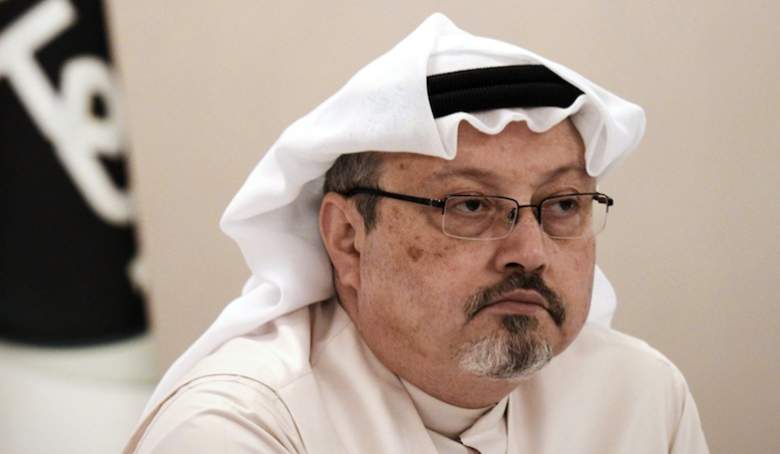
Getty Missing journalist Jamal Khashoggi is from a star-studded family tree, which includes Adnan Khashoggi, the late billionaire arms dealer, and Dodi Al Fayed, who was dating Princess Diana at the time of her death.
On October 17, the Washington Post published what is thought to be the very last column ever written by Jamal Khashoggi, the Saudi journalist who disappeared two weeks ago. Khashoggi walked into the Saudi embassy in Istanbul on October 2 to get paperwork proving that he had divorced his first wife; he needed the papers so that he could marry his fiance, Hatice Cengiz. But Khashoggi was never seen again.
Turkish authorities believe that a team of 15 Saudi nationals traveled to Istanbul for the purpose of killing Khashoggi when he visited the embassy. They say that audio recordings, obtained by Turkish intelligence, proves that the 15 men dismembered Khashoggi while he was still in the embassy.
The Washington Post received Khashoggi’s latest column from his translator on October 3, the day after Khashoggi disappeared. But the paper held off on publishing the column, hoping that Khashoggi himself would reappear. Finally, on October 17, the Post decided it was time to publish the piece. Karen Attiah, the Post’s Global Opinions editor, wrote,
“Now I have to accept: That is not going to happen. This is the last piece of his I will edit for The Post. This column perfectly captures his commitment and passion for freedom in the Arab world. A freedom he apparently gave his life for. I will be forever grateful he chose The Post as his final journalistic home one year ago and gave us the chance to work together.”
Perhaps fittingly, Khashoggi’s very last column is about press freedom in the Arab world. Or rather, the column is about the lack of press freedom. You can read Khashoggi’s last column here.
Khashoggi Wrote That the Lack of a Free Press Left Most People in the Arab World “Uninformed” About the Most Important Issues Impacting Their Lives
Khashoggi writes that — with the possible exception of Tunisia — there is no real free press in the Arab world. He’s basing that, in part, off of a Freedom House report, “Freedom in the World, 2018,” which lists Tunisia as the only country in the Arab world with a free press. Khashoggi also praises Qatar for its outward-looking media but says that elsewhere in the Arab world, the free press is non-existent.
As a result, he says, “Arabs living in these countries are either uninformed or misinformed” and are “unable to adequately address, much less publicly discuss, matters that affect the region and their day-to-day lives.” Khashoggi wrote, “A state-run narrative dominates the public psyche, and while many do not believe it, a large majority of the population falls victim to this false narrative. Sadly, this situation is unlikely to change.”
Khashoggi Said the ‘International Community’ Doesn’t Do Nearly Enough to Combat Censorship in the Arab World
Khashoggi zeroed in on a few examples of brutal crackdowns on journalists. He talked about the Saudi journalist Saleh al-Shehi, a man he referred to as his “dear friend,” who is now serving a five-year prison sentence after criticizing the Saudi leadership. Khashoggi also mentioned the Egyptian newspaper, el-Masry el-Youm, whose offices were raided by the government. Khashoggi writes about being disappointed by the international response to those events: “The Egyptian government’s seizure of the entire print run of a newspaper, al-Masry al Youm, did not enrage or provoke a reaction from colleagues. These actions no longer carry the consequence of a backlash from the international community. Instead, these actions may trigger condemnation quickly followed by silence.”
As a result, Khashoggi writes, “Arab governments have been given free rein to continue silencing the media at an increasing rate.”
He turned back to the Arab Spring, a moment of hope and revolution back in 2011 — but, Khashoggi said, all the hopes that people felt during that time have been disappointed. Khashoggi wrote,
“The Arab world was ripe with hope during the spring of 2011. Journalists, academics and the general population were brimming with expectations of a bright and free Arab society within their respective countries. They expected to be emancipated from the hegemony of their governments and the consistent interventions and censorship of information. These expectations were quickly shattered; these societies either fell back to the old status quo or faced even harsher conditions than before.”
You can read the full column here.